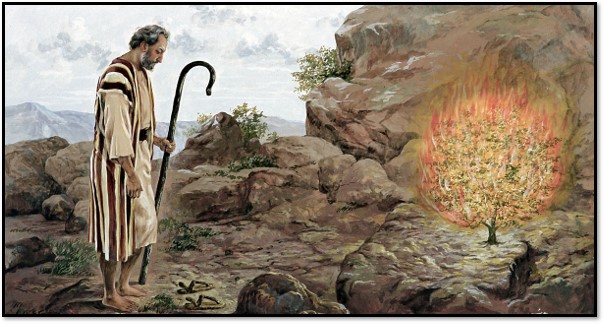
“And when the Lord saw that he turned aside to see, God called unto him out of the midst of the bush, and said, Moses, Moses. And he said, Here am I. And he said, Draw not nigh hither: put off thy shoes from off thy feet, for the place whereon thou standest is holy ground.” ~ Exodus 3:4-5.
Recording 372B, titled “Cast Thy Bread Upon the Waters,” from the 1960 Perth, Australia Closed Class, is the basis for Chapter 9, “Cast Thy Bread on the Waters,” in I Stand on Holy Ground. This recording is no longer posted on this website. If you subscribe to the Joel Goldsmith Streaming Service, you can listen to it there. To purchase the recording or transcript from The Infinite Way Office, click/tap here.
Download or print these study suggestions.
Practice, Practice, Practice
At the end of the source recording for Chapter 9, Joel says, “My students call me hard, and they tell me that I give them a rough time. But it is for this reason: I tell them honestly that I cannot take them into the kingdom of heaven, and I tell them honestly that my books won’t take them into the kingdom of heaven; that it is their practice of what is in those books that will take them into the kingdom of heaven.”
So as always, it behooves us to practice what Joel teaches in this chapter.
Joel says that the lessons in this chapter can be difficult ones. Like Chapter 8, Chapter 9 focuses on supply, but it puts an added emphasis on the reasons we experience lack and limitation and the importance of giving and pouring.
Sometimes we read a chapter like this and hear the source recording, but we might keep the lesson at arm’s length. In other words, we might agree with the teaching in the abstract, but might not take the opportunity to apply it to ourselves. This chapter invites us to reflect on our own life and practice.
If we are not experiencing the fullness of abundance in our life, we can ask ourselves whether we are really taking Joel’s words to heart and look honestly at how well we are practicing what he teaches. There are several ways to do this, and everyone should use whichever way seems best to them.
One way that has proven quite helpful for us is to ask ourselves questions, earnestly think about them, and be as honest as possible with ourselves in our answers. However, it is important to do this without self-criticism, self-judgment, or self-condemnation. We do it simply to see where we really are in our practice and what we might do differently.
These are some suggested questions to choose from and contemplate. All of them come from the material in Chapter 9. As you work with the chapter, alternate or additional questions might stand out for you.
Joel says that it is all up to us. What we put into life and into our spiritual practice is what we will take out. What we give will come back to us, pressed down and running over.
What Have You in the House?
Joel’s class, “What Have You in the House?” (Recording 426A from the 1961 Holland Special Class) is a wonderful complement to our study chapter. In this class, Joel speaks further about how we can bring forth that which is already within us. This recording is the basis for Chapter 6, “What Have You in the House?” in The Journey Back to the Father’s House. Highly recommended! This recording is no longer posted on this site. If you subscribe to the Joel Goldsmith Streaming Service, you can listen to it there. To purchase the recording or transcript from The Infinite Way Office, click/tap here.
Goldsmith Global – Joel Goldsmith Infinite Way
Copyright © 2024 | ACS Quantum Design
